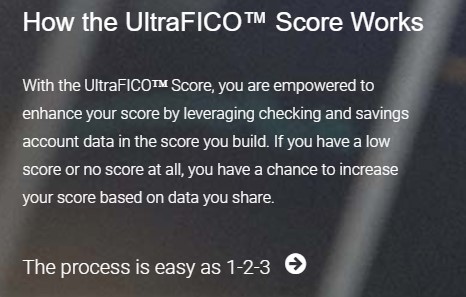Just when you thought you understood credit scores, they go and change the game on you.
Fair Isaac Corporation, the company behind the original FICO score, has announced a new credit score that will benefit folks who do not have enough history for an accurate FICO credit score.
Besides the sweet new name, UltraFICO goes beyond the regular FICO score. It takes your credit history, which includes payment history, default history, credit utilization, and builds on it.
It will include other factors that may contribute to total creditworthiness. These factors include data from your deposit accounts, like checking and savings, to give creditors a better understanding of your fiscal responsibility.
What is UltraFICO?
The details on UltraFico aren't as well understood as traditional FICO, but the idea is that your checking and savings behavior will play a role. On the UltraFICO page, it explains that your banking behavior will show how responsible you are financially through:
- Evidence of savings and keeping a healthy average balance
- Maintaining a bank account over time
- Avoiding having a negative balance
- Regularly paying bills and making other bank transactions
When UltraFICO is fully launched in 2019, we will have a better understanding of how these factors will impact you. We will also see how quickly lenders and creditors will adopt UltraFICO. It's only useful to you if that happens.
One indicator of why it might get widespread adoption is their partnerships with Experian and Finicity. Experian is one of the big three credit bureaus and Finicity is a leader in financial data with multiple partnerships.
How Will They Get This Data?
At this point, I'm just guessing so take that with a grain of salt.
This screengrab is from their page:

But it appears that you will voluntarily contribute this data to FICO by linking up your accounts to their app. Much like you would link up your accounts to a Personal Capital or a Mint, to help you budget, you're now providing this data to FICO for credit scoring.
It will be interesting to see the terms and conditions of this data sharing.
Why A New Credit Score?
A credit score is designed to give lenders information about your ability to manage money. It's a measure of default risk, or the probability you will borrow money from them and not pay it back. For many lenders, they aren't terribly worried if you miss a payment or two. In fact, they probably like it. 🙂
They want to avoid the catastrophic loss. That's when you charge up a $10,000+ credit card debt and then declare bankruptcy. That's what the FICO credit score is meant to protect them against.
But lenders also want to make money. So what about those folks who don't have a long history? Or had a massive failure in the past but have recovered, learning how to better manage their money? They represent a set of consumers who are now creditworthy but don't appear to be in a traditional FICO score. Heck, 10% of consumers are “credit invisible,” according to the Consumer Financial Protection Bureau.
What About VantageScore 4.0?
VantageScore was created by the three credit bureaus (Experian, Equifax, TransUnion) as an alternative to FICO. VantageScore does a few things differently than the traditional FICO.
The reduces the impact of some “negative credit-file records,” like medical collections and tax liens. The idea is that a medical collection is likely the result of bad luck rather than poor financial management skills, so they reduce the impact of a medical collection.
For consumers without much of a credit history, they use machine learning to try to predict their score. And for those who are improving, they try to use trended credit data to predict improvements. The idea is to more accurately predict one's credit risk today given an ever-changing history.
In the end, it all matters what the lenders use and it appears VantageScore is still growing.




I have no problems if it helps folks with little history establish a better credit score, as long as it doesn’t lower the score of those with established credit under the traditional scoring methods. I guess we will have to wait and see.
If the traditional scoring methods don’t change, and my guess is Fair Isaac Corp wouldn’t mess with the regular FICO score, then this can only help. It bridges that gap of information where FICO doesn’t know enough, so I like the idea behind it. Time will tell whether lenders use it though.
I think this has shown itself through things like Experian Boost which tracks your bank accounts and your monthly bills like utilities. It’s not worth it to ME to utilize it but for sure it seems like it can help a good-credit seeking individual with little (or checkered) history. I’m NOT a big fan of linking bank accounts to credit monitoring services given Experian’s recent history with identity theft breaches, though, but again this isn’t a service I need so I’m able to decline. I’ve not seen a change in my own credit scores to suggest that its pulling traditional… Read more »